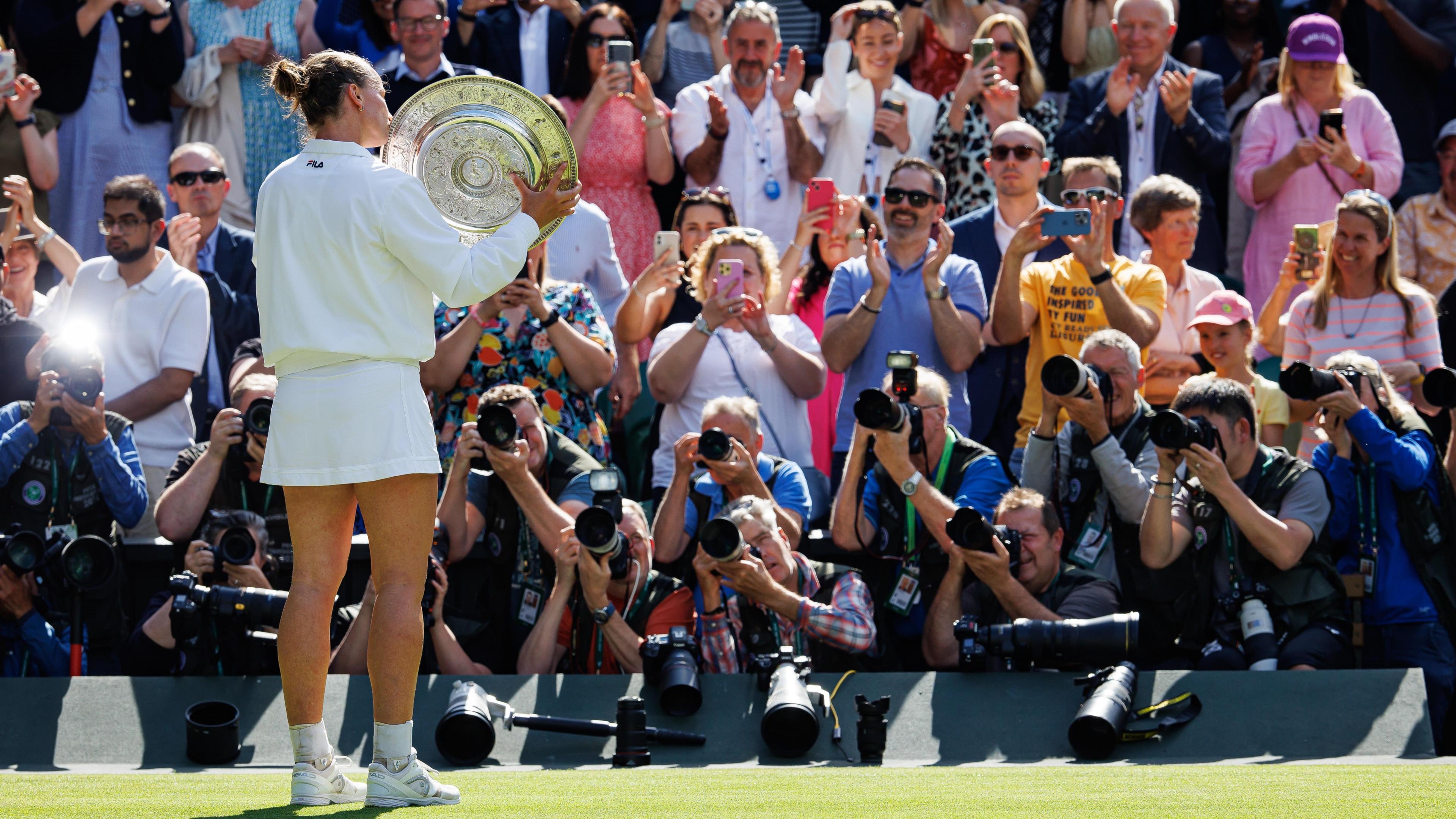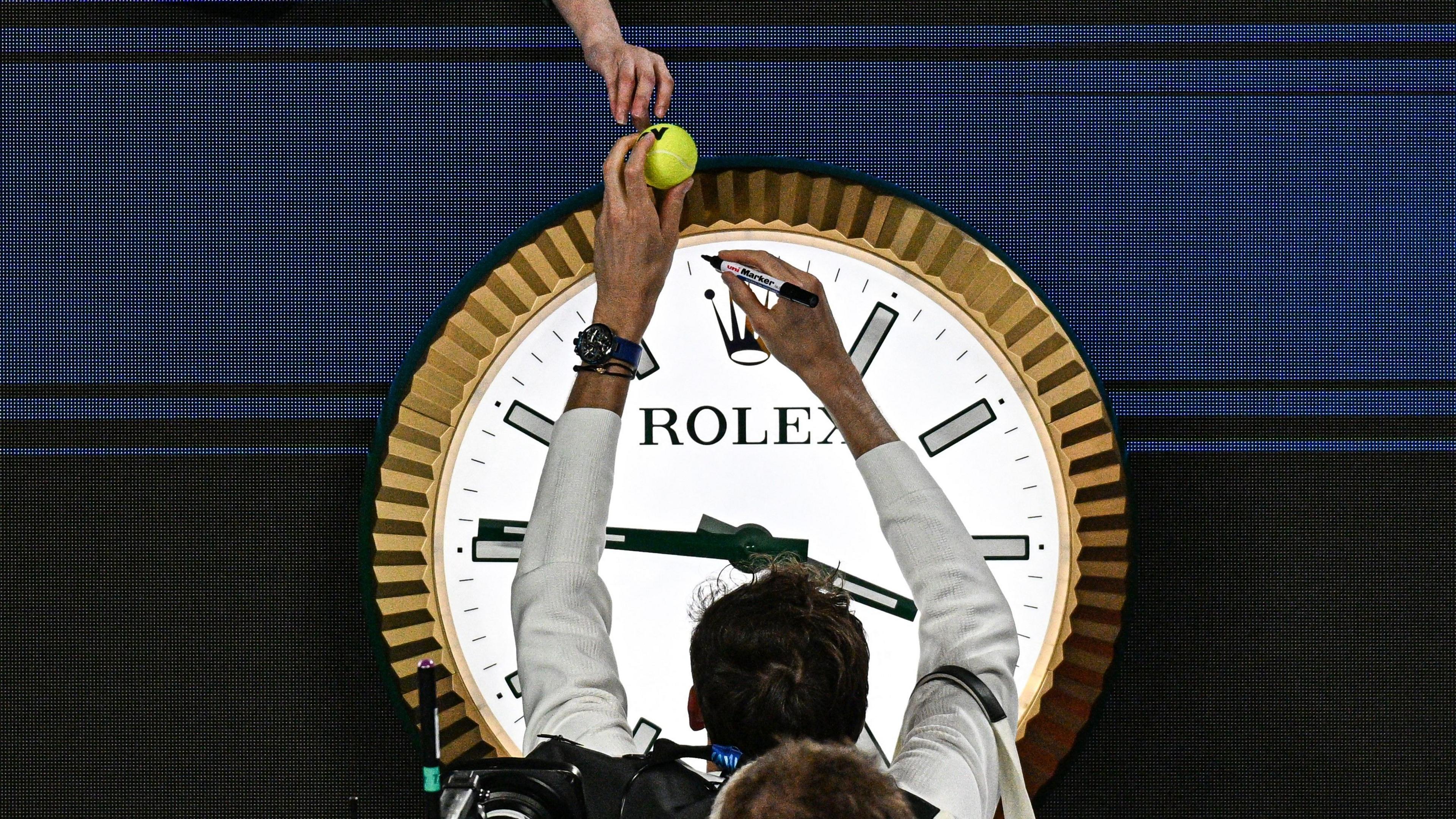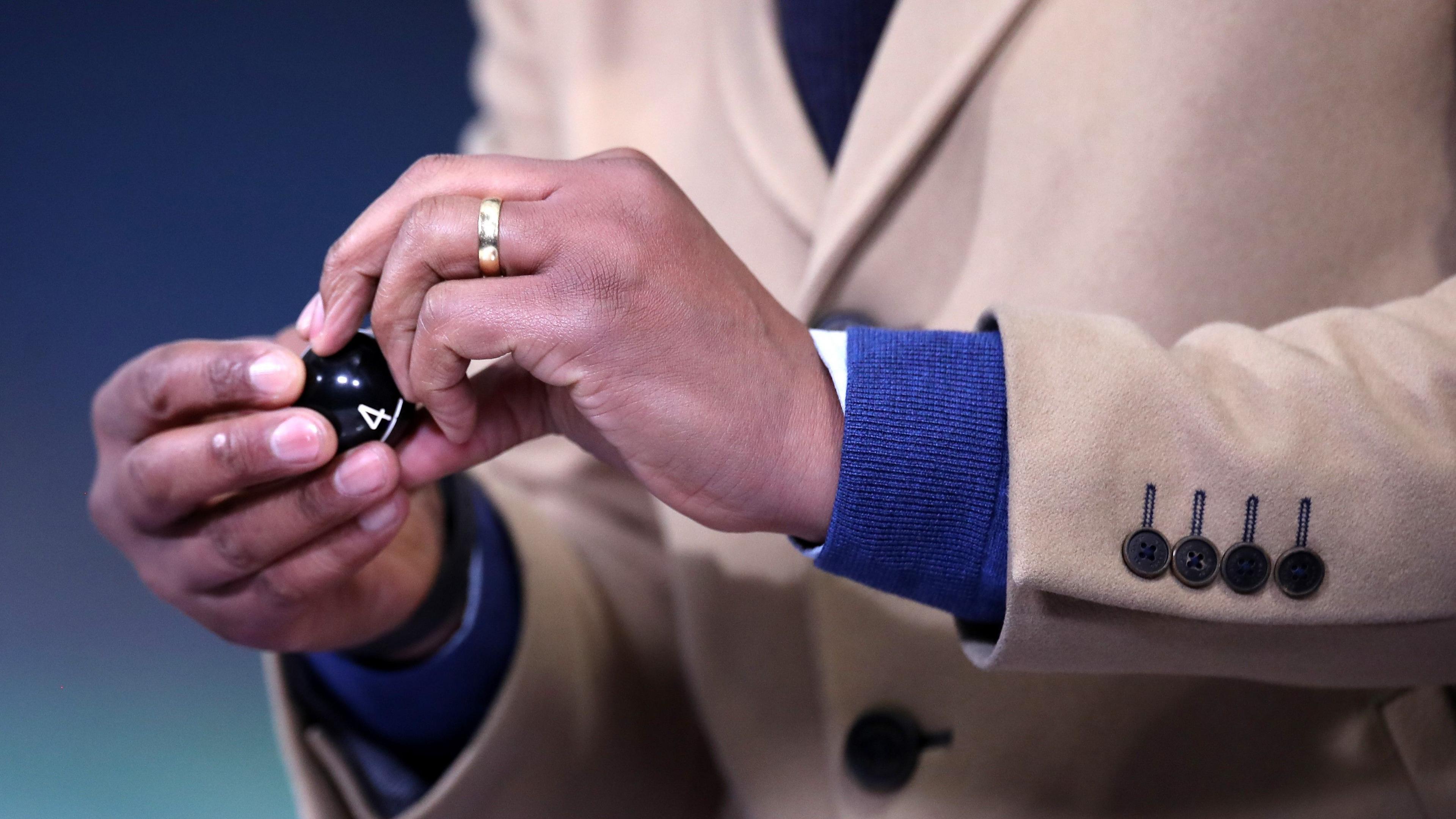Ladies first on Centre Court & best of three in Slam first week - ideas to shake up tennis

Barbora Krejcikova won her second Grand Slam singles title at this year's Wimbledon
- Published
With another tennis year about to begin, please indulge your imagination for a moment.
It is Monday, 30 June 2025 and we have just had this report from Wimbledon.
"The defending ladies' champion was the first player to walk out on to Centre Court this year, as The All England Club joined the other Grand Slams in a year of significant change.
"Men have joined women in playing best-of-three sets in the first four rounds of a major, with all singles played over five sets from the quarter-finals onwards.
"Change at this year’s Australian Open was well received. There was only one post-midnight finish as 17:00 local time was adopted as a default starting point for night sessions - and there is much to look forward to later in the year.
"The Davis Cup and Billie Jean King Cup will merge to create a World Cup of Tennis in September, while late-season tournaments will feature FA Cup-style draws, faster scoring formats and players having to hit a serve regardless of how badly they toss the ball."
You might not like all of those ideas - or even any of them - but change is not as hard as is often made out.
Here are five ideas to shake up tennis.
Why Raducanu is giving herself a 'pat on the back' for 2024
- Published9 December 2024
Are there 'different approaches' to tennis doping cases?
- Published15 February
What being coached by Murray could do for Djokovic
- Published24 November 2024
Ladies first on Centre Court
There is a long standing tradition of the men's singles final taking place on the last Sunday of a Grand Slam - and up until 1981, the women's Wimbledon final took place on a Friday.
A men's final on a Sunday allows for both semi-finals to be played on a Friday, ensuring no-one should have to play five-set matches on consecutive days.
But if men get to end the tournament, then why are women not invited to raise the Centre Court curtain on the opening Monday?
Tradition should not be used as a reason to maintain the status quo, as the All England Club has already announced next year's singles finals will start at the later time of 16:00 to attract the largest possible worldwide audience.
Best of three sets in Slam first week
This debate causes me a lot of anguish.
With matches getting longer, I just do not feel it is sustainable for either players or TV audiences if early-round matches regularly stretch to four or five hours.
Playing the first four rounds of the men's singles over three sets rather than five would, I know, deprive us of the odd Grand Slam classic.
There would perhaps be a few more upsets, but the top players are more than capable of bringing that intensity from game one. As the Olympics and various tour finals have shown, three-set matches can be utterly compelling.
I would suggest reverting to five sets from the quarter-finals onwards, and offering women the same opportunity.
Changing the format halfway through does not seem an issue to me. Footballers sometimes need to play half-an-hour of extra time, cricketers switch between T20 matches and five-day Tests, and you need 10 frames to win a first-round World Snooker Championships match - but 18 to win the final.
Make it an evening out, rather than a sleepover

Daniil Medvedev thanked fans for staying until nearly 4am at the Australian Open - but said he himself would have been long asleep
Players have been talking about the physical and mental impact of late finishes for years.
The ATP and WTA Tour have jointly brought in a new rule which means no matches should start after 11pm - but there are loopholes, and that does not apply to the four majors.
Daniil Medvedev and Emil Ruusuvuori played until 3.40am at this year’s Australian Open, despite Tennis Australia starting the tournament a day earlier to "deliver a solution to minimise late finishes".
This year's US Open saw a record latest finish for a women's match in the event's history, and a men's match which finished even later., external
If these two Slams want to continue to stage both a women's and a men's match in the night session, with the possibility of eight sets of tennis, then they cannot start at 7pm.
A 5pm start may cause issues with the TV evening news bulletin, and some inconvenience for those who live close and are hoping to do a full day's work beforehand, but it would dramatically reduce the number of post-midnight finishes.
Mixed team World Cup in September
A mixed team World Cup should be created so that top players approach it the same way they do a Grand Slam, and withdraw only as a last resort.
The timing of this is so important. The finals of team competitions should no longer be in November, when players' bodies feel broken and they know they have barely a month before a new season begins.
Late September would be perfect, even if events like the Laver Cup have to move back in the calendar.
The Davis and Billie Jean King Cups have a proud history, with the men's event dating back to 1900, but a mixed finals involving 16 teams would be an important step towards maintaining the prestige of the competitions.
FA Cup style draws and a faster format

Why not try a random, FA Cup-style draw in which there are no seeds for each round?
An October finish would be welcomed by many, but there would still be a chance to experiment once the Grand Slam season is done.
Why should virtually every ATP and WTA event follow the same format?
Holding indoor events in Europe with smaller fields later in the season presents an opportunity to experiment and attract attention that could otherwise move elsewhere.
Seedings are a way of protecting the top players - and a tournament director’s investment in them - but why not try a random FA Cup-style draw before each round?
Or, why not play the first to four games, as featured at the Next Gen ATP Finals? Scrap lets and watch a player scramble to reach a net affected serve? Or demand a player hit their own serve even if the ball toss goes awry?
What's the harm in trying?